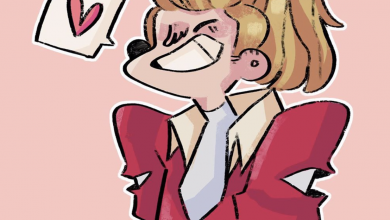On Blocking and Unfriending and Muting and Silencing in General

Recently I unfriended one of my friends on Facebook.
Well, I say friend. We knew each other in grad school. We ran with the same pack, as one does in grad school. But when I joined FB, she reached out to me, and I friended her.
We had grown to have more in common, or so it seemed to me at the time. We were both far-left Leftists, in other words, both interested in social justice and feminism, both serious about environmentalism.
But every now and then, you know, you’d say something she thought was wrong, and she would cut you.
I don’t mean she would – politely or otherwise – point out that you were wrong, or mistaken. I mean she would come after you with her verbal axe swinging.
*** *** ***
My kid runs a web comic. (She refuses to allow me to tell everyone which one, despite how madly proud I am of how brilliant it is, so I can’t link it here.) Every time she updates the comic, she gets, literally, hundreds of comments per page.
Now most of these comments are lovely. People will comment about the art. They will talk about character development, or plot. They will speculate about what’s going to happen next, or they will ship characters (lots of shipping, y’all).
But very occasionally, a comment will be hateful. This is exacerbated, no doubt, by the fact the comic has LGBT characters; but it’s not only the queer stuff that gets her attacked. Sometimes it’s her art, or her storylines. People on the internet can be vicious.
She would come to me, when this first started happening, deeply upset and wondering what to do.
“Can’t you block people?” I asked. “Does this site have that feature?”
“Well…yes. But…”
But that felt like censorship.
I understood completely, believe me. The first time I deleted a comment on my blog, it took me four days to decide to do it.
This was a comment from Gamergate-like gentleman (not actually GamerGate, since it was six or seven years ago) who had gotten angry at something I had posted about feminism and had committed himself to learning everything he could about me, and posting comments on the blog, revealing those things that he knew, and telling me exactly what he planned to do with the information. 
And it took me four days to decide that it was okay to delete his comments. Because censorship.
*** *** ***
I explained to my kid what is true: we create a space on the internet, a virtual space, where conversation is possible. But that space is our space – our own virtual living room, as it were – and we are not required to allow people into that space.
My Facebook page is my page. My blog is my blog. Her comic page is her page. She can let people comment on it; but she can also block people who won’t be civil, who won’t follow the rules she sets.
Is this silencing people? Is it censorship?
I’ve heard arguments that it is. But I disagree. I have not told my friend (ex-friend now, to be fair) that she can’t speak. I’ve told her she can’t speak to me. I didn’t tell that pre-GamerGate stalker he couldn’t say hateful stalker things. I told him he couldn’t say hateful stalker things on my blog. Any time he wants to talk, he can, after all, make his own blog.
We’re all allowed to do this. Free Speech is certainly a Civil Right. But it does not require us to allow people into our own living rooms so that they can attack us.
(Images: Photograph taken by Wikicommons user Patrick in South Africa, Troll Park near Pretoria; Angry Man from Wikicommons user Tomia)





I guess I have a hard time understanding why you’d have any second thoughts about unfriending and blocking or banning and deleting comments. You’re not “silencing” anyone, since your Facebook ex-“friends” can still post to their heart’s content on their own pages and their non-ex “friends” can still see them. The abusive commenters can still say what they want on their own site or sites belonging to like-minded folks. In my view, it’s no different from hanging up on telemarketers and scammers. Or deciding not to get together with an acquaintance whose company you don’t like.
In particular, I think it’s important to give your kids the message that they don’t have to be friends with people who aren’t nice to them. They don’t have to listen to people who verbally abuse them. They can drop junk mail in the trash unread. And they don’t have to let people onto their websites or Facebook pages and streams who don’t make their lives better by being there.
Just to push the home analogy one step more: if I have a party, and one of the guests gets drunk and violent to the other guests, I will get the guest who is making everyone else unhappy to leave. I will try to do so kindly at first. All of this is for my sake, but also for my guests. Your daughter’s readers (wish I knew the strip) and your readers are guests to your sites. As a good host, you protect them from people who are cruel. (Not, necessarily, from conversation that makes them a occasionally uncomfortable because it stretches their thoughts a bit, but from cruelty.) Your party, your guests, your call.
(great post, btw)
“As a good host, you protect them from people who are cruel.”
Yes, this! I think my kid feels this in particular, too — the responsibility not to allow homophobes and haters to post unchallenged on her site. (As well she should!)